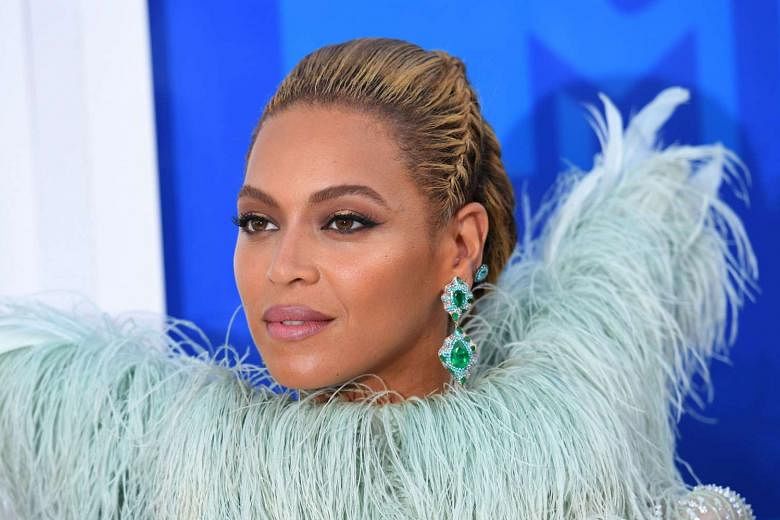(Washington Post) - In a unique, Creole-inflected voice heard in the opening sample of Beyonce's hit single Formation off her statement album Lemonade, come the words, "What happened at the New Wildins?" and "B----, I'm back. By popular demand." Also in the song is the same voice stating, "I like that."
That distinctive voice belonged to the late Anthony Barre, better known in New Orleans as social media star/comedian/bounce rapper Messy Mya.
His family has now claimed the pop star didn't have permission to sample his voice.
According to the New Orleans Advocate, Barre's sister Angel has filed a lawsuit against Beyonce seeking more than US$20 million in back royalties and other damages.
The sample comes from a YouTube video by Messy Mya titled Booking The Hoes From New Wildin, which has been viewed more than 2 million times, and another titled A 27-Piece Huh?.
The estate allegedly reached out to Beyoncé several times seeking compensation for the sample. Thus far, she has not responded to requests for comments from Pitchfork or Vulture website.
Whether the lawsuit holds weight or not, it does highlight a much overlooked, and debated, aspect of her record-breaking album.
Though she hails from Houston, she clearly found inspiration in New Orleans culture while writing Lemonade. From the second-line brass horns kicking off Daddy Lessons to images of Mardi Gras Indians and the city drowning in the floodwaters of Hurricane Katrina in the video for Formation, the Crescent City's imprint can be found throughout the record.
Messy Mya - with his long, frizzy, purple hair, Lil' Wayne-esque gravelly voice and shaky-cam videos shot on the streets of New Orleans, generally the French Quarter - was a burgeoning bounce rap star. He became a symbol of the city's murder epidemic.
His mother was fatally shot by her boyfriend when he was 13, and years later his grandfather, political powerbroker Stan "Pampy" Barre, was imprisoned in a City Hall kickback scheme, as reported by Nola.com.
Still he kept his eye on his musical ambitions, which he supported by creating "on the street" style videos in which he wandered around the city, interacting with residents and making sly comments. "This is my reality show," he said in one. "Welcome to Messy world."
In his later videos in 2010, he began discussing death, hinting that his own might come soon by pointing out the life expectancy for a young black New Orleans man is shockingly shorter than average. He even coined a catchphrase, leaden with sorrowful meaning: "Now, who gonna pop me?"
In November 2010, at 22, he went to the baby shower of his unborn son. Upon leaving, he was gunned down in the streets of the 7th Ward. Word of his death first broke online. The ensuing trial, which was filled with oddities of its own, earned him posthumous national attention.
Given Lemonade's direct references to the lost lives of young black men, and its deep links to Black Lives Matter, some found fitting the usage of images of Hurricane Katrina and the sampled voice of a semi-prominent young black man killed in, as FiveThirtyEight website noted, "a city where more than 100 black men are gunned down each year and hundreds more see their lives derailed by jail or prison".
Others, though, found these references to the city's tragedies offensive. "I really want to know if Messy Mya's family or son was paid for the use of his voice and work which is sampled in the very beginning of the video and then around the one minute mark. People love to enrich themselves off the tragedies in this city," wrote one Nola.com commenter at the time of the album's release.
Regardless of which side of this debate fans and critics fall, one thing's clear - Barre's sister considered the usage of her brother's voice to be appropriation.

